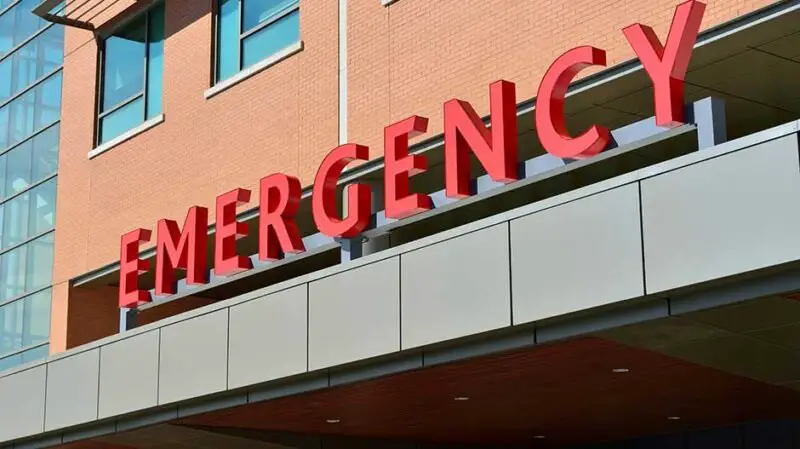
Having a complete emergency contact list ensures safety and timely aid in emergencies. Emergency help, information, and actions can be provided via these people. The appropriate connections can make a big difference in a medical emergency, natural catastrophe, or other unforeseen incident. This article describes four emergency contacts you need in-depth to help you prepare for different eventualities.
Medical Emergency Contacts
One essential type of emergency contact you need is a medical professional, such as an OBGYN, especially if you are pregnant or planning to become pregnant. Having the contact information of your OBGYN readily available ensures that you can quickly reach out for expert advice and care in case of any pregnancy-related complications. This is crucial for timely medical intervention, which can significantly impact the health and safety of both the mother and baby. Additionally, if you are living in Richmond, an experienced OBGYN in Richmond VA can provide guidance and support during unexpected situations, offering peace of mind. Including your OBGYN in your list of emergency contacts is a proactive step toward ensuring comprehensive medical care when you need it most.
Your primary care physician should be the first point of contact for non-life-threatening medical concerns. They are familiar with your medical history and can provide guidance or referrals as needed. In case of severe or life-threatening situations, knowing the nearest hospitals and their emergency room phone numbers can save valuable time. Additionally, if you have specific medical conditions, including the contact information for specialists, such as a cardiologist or allergist, can be lifesaving. Keeping an updated list of these contacts in your phone and a physical copy in your home ensures you are prepared for any medical emergency.
Family and Close Friends
Having family and close friends as emergency contacts is vital for emotional support and practical assistance. These individuals can provide immediate help, whether it’s offering a ride to the hospital, taking care of children or pets, or simply being there for moral support. Choose reliable and trustworthy people who live nearby and are willing to assist you in emergencies. Ensure they are aware of any specific needs or medical conditions you might have so they can act appropriately if an emergency arises.
In addition to immediate family members, consider including a couple of close friends who can be relied upon in urgent situations. These contacts should be informed about your emergency plans and have access to essential information, such as spare keys to your home or details about your healthcare preferences. Having a diverse group of contacts increases the likelihood that someone will be available to help when needed. Regularly updating and communicating with these individuals about your emergency plans ensures that they are prepared to act quickly and effectively in a crisis.
Workplace Contacts
Workplace contacts are essential for handling emergencies that occur during working hours or that affect your ability to perform your job. These contacts should include your immediate supervisor, the human resources department, and any workplace emergency coordinators. Informing your employer and key colleagues about who to contact in case of an emergency ensures that appropriate actions can be taken quickly. This is particularly important if you experience a medical emergency or need to leave work unexpectedly.
In addition to your supervisor and HR, consider including the contact information for the building’s security team or emergency response personnel. They can provide immediate assistance and coordinate with emergency services if necessary. It’s also helpful to have the contact information for coworkers who can help manage your responsibilities or inform other team members about your situation. Keeping these contacts up-to-date and easily accessible ensures that you and your workplace are prepared for any emergencies that can arise during work hours.
Local Emergency Services
Local emergency services contacts are fundamental for responding to urgent and potentially life-threatening situations. These contacts should include the phone numbers of local police, fire departments, and emergency medical services (EMS). While dialing 911 is standard in the United States for emergencies, having direct numbers for local services can be beneficial in specific scenarios. Additionally, knowing the contact information for your local poison control center, animal control, and non-emergency police lines can be extremely helpful.
Having direct contact with local emergency services allows for faster response times and more efficient communication. For example, in the event of a fire, contacting the local fire department directly can expedite their arrival and potentially save lives and property. Similarly, if you encounter a dangerous situation requiring police intervention, knowing the local police department’s number can provide a direct line to assistance. Keeping these contacts saved in your phone and displayed in your home ensures that you can act swiftly in any emergency.
Conclusion
Being prepared for any disaster requires a well-organized list of emergency contacts. Safety and fast aid depend on medical emergency connections, family and close friends, business contacts, and local emergency services. Each contact type offers specific assistance and tools to tackle emergencies. You and your family can confront any situation with confidence and resilience by keeping and updating these contacts. Taking these precautions improves personal safety and community preparedness.

